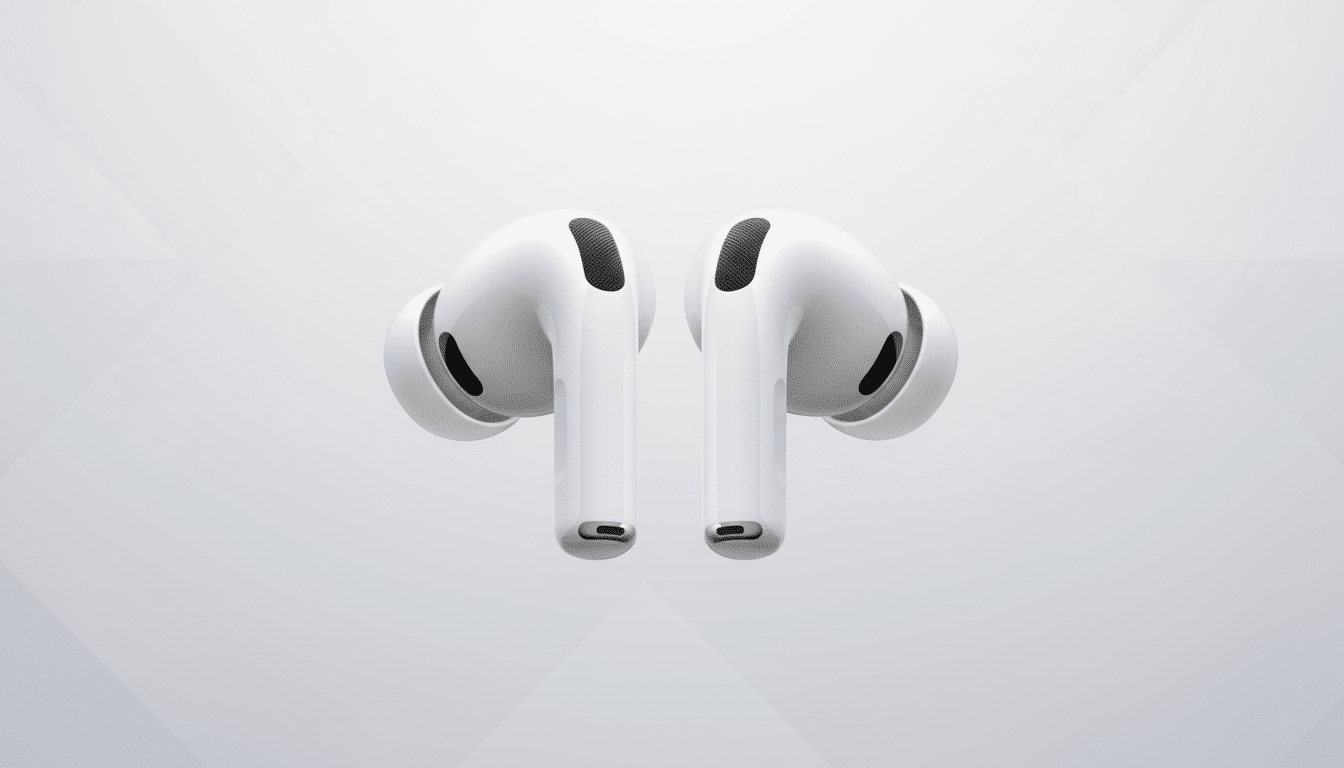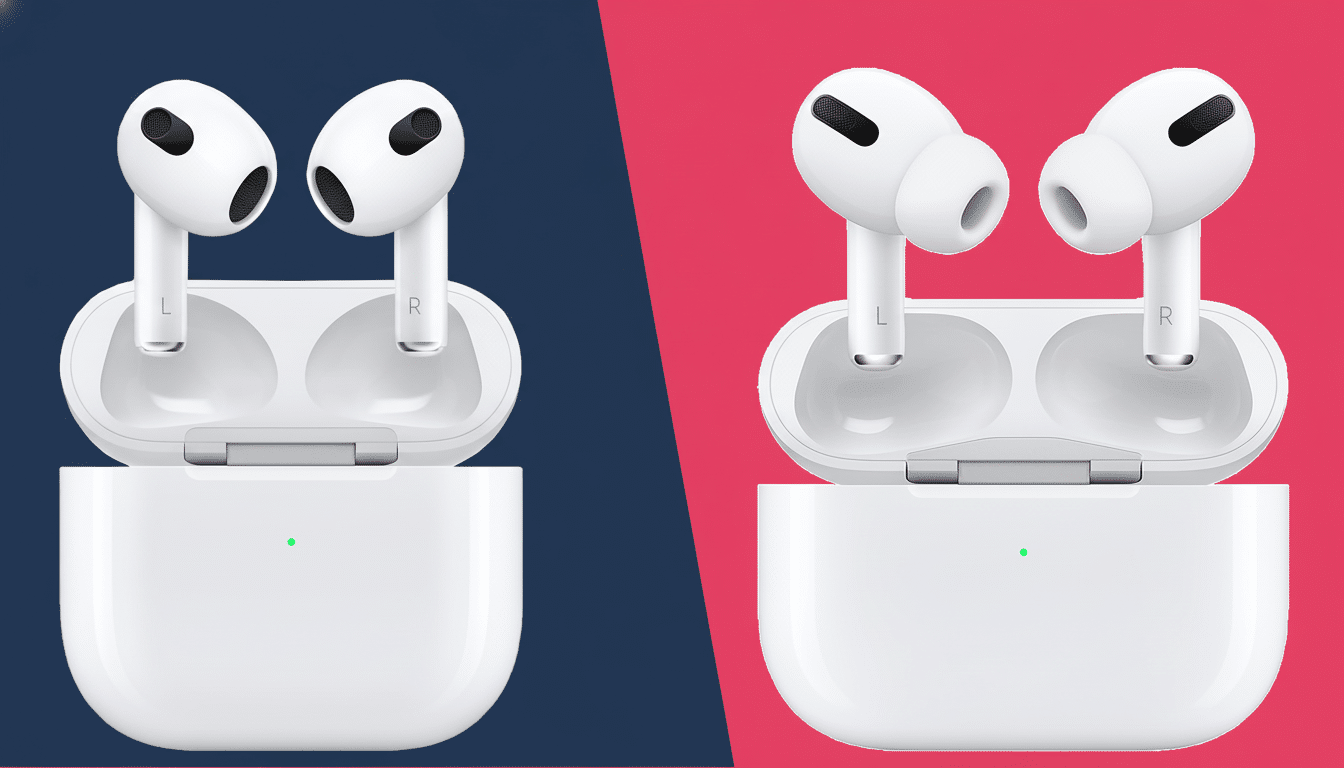Apple third‑gen AirPods Pro come looking the same, but appear to offer smarter fitness features, tougher water resistance and more advanced noise cancelling. For existing Pro 2 owners, the question becomes whether the new speakers’ upgrades actually meaningfully impact day‑to‑day listening — or if your money’s better off in your pocket.
Here’s a direct, expert-to-reader comparison that takes none of the marketing speak and gets to what actually is different, what matters in the real world, and who should upgrade.

What’s really new on AirPods Pro 3
Apple maintains the same $249 price but includes three differentiators: in‑ear heart‑rate monitoring, triple the active noise cancellation using all‑new ultra‑low‑noise mics and a higher IP57 rating for dust and water resistance. There are also some changes to the acoustic design — Apple references a “multiport” design — and new eartips that sandwich foam inside silicone for a better seal.
Core features stick around: the H2 chip, Bluetooth 5.3, Personalized Spatial Audio with head tracking, Adaptive EQ, and Apple’s ecosystem benefits, such as device switching and Find My for the case.
Noise cancelling and sound quality
Apple claims the Pro 3 cancel as much as twice the amount of external noise compared with the Pro 2. While “2x” is a marketing shorthand, the engineering changes align with how ANC operates: Cleaner mic input and a firmer ear seal mean more effective suppression of low‑frequency growl (thank subway and airplane noise) and better handling of midrange talk. Quick demos at launch events confirmed that: less cabin roar and a quieter floor in noisy spaces.
On sound, don’t expect a wholesale tonal shift. Apple hasn’t provided details on new drivers, with both generations leveraging the H2 platform with the same features. The Pro 2s already measure well across independent labs for balanced tuning and low distortion. It’s possible that the Pro 3’s acoustic tweaks might result in more incremental clarity and tighter bass control, but this is likely an evolution, not a complete reinvention. It’s not for audiophiles after a radically different signature.
Oh, and here’s a small (but useful) pro tip: foam‑coated tips are usually much better than regular silicone when it comes to passive isolation, and that can benefit both the effectiveness of ANC and the perceived volume of bass. These low‑frequency measurements have those tips tested for a long while by sites like Rtings, all of which have shown the denser tips blocking better, although fit is subjective, as is commonly said—try all sizes once.
Fitness and health: in‑ear heart rate
The star Pro 3 add is optical heart‑rate sensing in the ear. For runners, cyclists, if you love HIIT, this bridges the gap when you don’t wear a watch, it’s also useful for casual effort tracking. Ear‑based photoplethysmography has been demonstrated in academic studies to be more stable during motion than wrist readings, but neither constitutes a medical device.
There’s no ECG or blood‑oxygen feature here, and Apple frames the readings as fitness metrics, not diagnostics. That said, for those who track workouts with a phone, and are looking for heart‑rate zones or recovery context in the Health app, the convenience is an entirely welcome one Pro 2 can’t match.
Battery life and charging trade‑offs
Bud stamina increases within a rated 6 hours (Pro 2) to as many as 8 hours (Pro 3) when ANC is on — perfect for extended flights and remote workdays.

The trade‑off comes in the case: the case for the Pro 3 gives up to 24 hours total with ANC, compared to 30 hours on the Pro 2 case. In real-world use, commuters and office-dwellers will notice the longer single-session battery more than the smaller case reserve.
Both generations feature USB‑C and MagSafe and Qi wireless charging, as well as precision finding for the case via UWB on compatible iPhones.
Durability and calls
It might not be a game changer, moving from IP54 to IP57, but it’s a sensible progression. International Protection (IP) ratings of 57 say the earbuds and case go ahead and filter dust from getting in and the case can be submerged in fresh water for a brief period of time. You still shouldn’t swim with them, but rinsing them of salt or sweat after a WE3 workout is much less dangerous— a common failing of older cases.
Audio is also enhanced thanks to the new mic system. Ultra‑low‑noise microphones and Apple’s voice isolation algorithms minimize hiss and wind shear, and the Pro 3 has longer battery life, so it’s a better choice if you spend a lot of time taking calls outdoors or using them on a train. In our experience with Pro 2 and rival buds from Bose and Sony, mic tuning is as important as ANC for real-world usability.
Ecosystem and codecs
Codec support is Apple‑typical: AAC over Bluetooth 5.3, plus Apple’s spatial audio stack. If you’re heavily invested in the iPhone, iPad and Mac ecosystem, the auto-switching, hands‑free Siri and Adaptive Audio features that debut in the latest iOS updates are still standout conveniences. Android users will get the basics but not the tight system integration that makes the AirPods experience the AirPods experience.
Price, value and who should upgrade
At the same list price, Pro 3 offer obvious functional improvements: more effective ANC, in‑ear heart rate tracking and vastly improved water resistance. If you’re a regular gym-goer, commuting in noisy environments, or have simply murdered a case with sweat or rain, the upgrade seems pretty justified to me.
If your Pros 2 are in good condition, you’re pleased with their noise cancelling, and you aren’t interested in heart rate, you can stick with what you’ve got — especially considering that Pro 2 frequently drop below list price at major retailers. All of which makes the original AirPods Pro or standard AirPods now feel rudimentary for when it comes to ANC, fit, or the features arms race – and Pro 3 seems the most futureward of the options we’ve seen so far.
Bottom line: Pro 3 are a substantial refinement, not a complete overhaul. Buy it for the ANC & durability boosts… and the rare convenience of heart rate tracking in your ears (just don’t expect completely new sound or the most comfortable ear fit).

